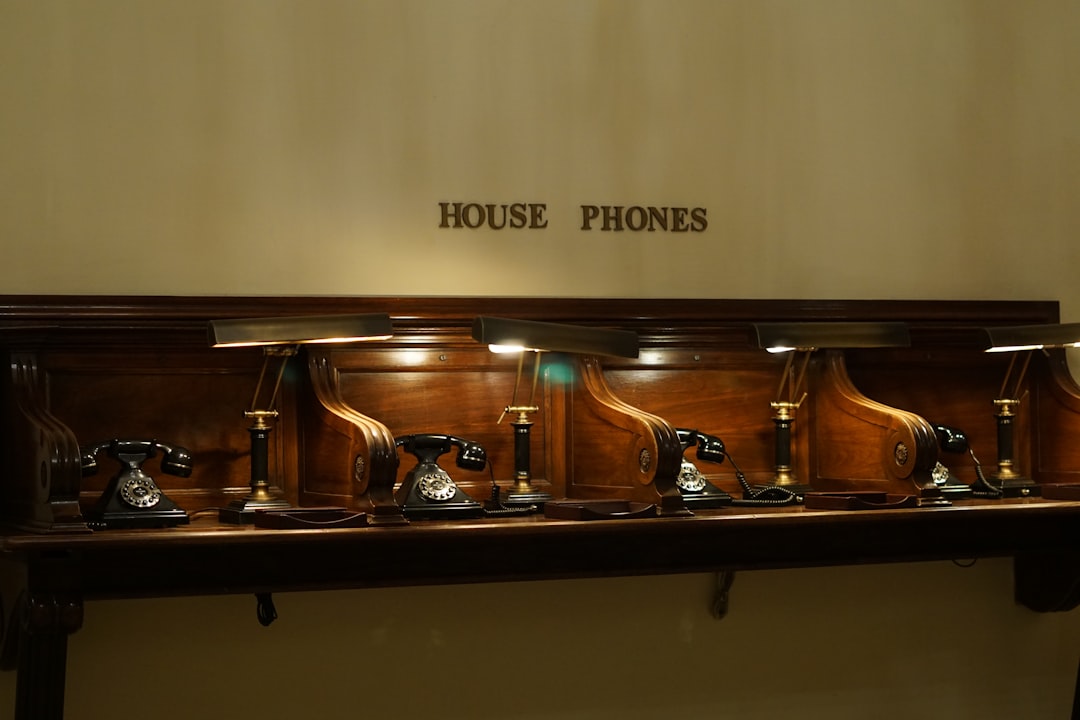Connecticut residents are protected from spam calls by strict state laws. Specialized Spam Call law firm Connecticut can assist in call management. Android and iPhone users have access to effective blocking apps like Hiya and TrueCall, leveraging machine learning and community updates to block unwanted calls, adhering to local regulations. Customizable settings allow for personalized protection against spam numbers and types. Reporting nuisance calls aids in combating malicious telemarketing practices.
In Connecticut, a strong Spam Call law firm protects residents from relentless robocalls. Effective blocking and filtering apps empower you to reclaim your phone lines. This guide navigates best practices for both Android and iPhone devices. We explore top-rated apps, app settings customization, and reporting unwanted calls within the state’s legal framework. Discover how to fortify your communication experience against intrusive automated calls.
Understanding Connecticut's Spam Call Laws

In Connecticut, robocalls and spam calls are regulated by the state’s Spam Call Laws, designed to protect residents from unwanted and deceptive telephone marketing practices. These laws empower individuals to take measures against nuisance calls, including blocking and reporting them. According to these regulations, businesses must obtain explicit consent before placing automated calls for marketing purposes.
If you’re facing an excessive number of robocalls, consulting a legal expert specializing in Connecticut’s Spam Call Laws can be beneficial. A law firm experienced in this area can guide you on the best strategies to block and manage these calls effectively, ensuring compliance with state regulations while safeguarding your privacy.
Best Robocall Blocking Apps for Android

In today’s digital era, spam robocalls have become a persistent nuisance, but Android users in Connecticut now have powerful tools at their disposal to combat this issue. Several robust call-blocking apps are available that can significantly enhance your phone’s security and peace of mind. One of the top choices is Hiya, an app renowned for its advanced machine learning algorithms that identify and block unwanted calls, including those from law firms known for aggressive spamming practices under Connecticut’s Spam Call laws.
Another popular option is TrueCall. This app not only blocks robocalls but also provides detailed call data and allows users to report spam. With a community-driven approach, TrueCall continuously updates its spam list, ensuring that you stay protected against the latest phone scams. These apps offer easy installations and user-friendly interfaces, empowering Connecticut residents to take control of their communication and protect themselves from nuisance calls.
Effective Robocall Filtering on iPhone

In today’s digital era, robocalls have become a persistent nuisance, with many Americans struggling to distinguish legitimate calls from unwanted spam. Fortunately, iPhone users in Connecticut have powerful tools at their disposal to combat this growing problem. One effective method is to utilize dedicated call-blocking apps that employ advanced algorithms to identify and filter out robocalls before they reach your phone.
These apps often draw upon extensive databases of known spam numbers and machine learning technologies to learn and adapt to new tactics used by telemarketers and scammers. By seamlessly integrating with your iPhone’s native features, these apps can help you stay protected under Connecticut’s strict Spam Call law firm regulations, ensuring a safer and less disruptive experience while making calls or receiving them.
Customizing App Settings for Personalized Protection

Many robocall-blocking apps offer advanced settings that allow for a more personalized experience. You can customize your app to block calls from specific areas, numbers, or even types of callers based on their behavior. For example, if certain calls consistently land in your spam folder, you can set the app to automatically block similar numbers. This feature is especially useful when navigating Connecticut’s Spam Call law, as it allows you to take proactive measures against unwanted calls.
By adjusting these settings, you can tailor the app’s protection to fit your needs. It might be beneficial to block local area codes known for spam calls or even specific companies that frequently invade your privacy. Remember, staying informed about Connecticut’s consumer protection laws regarding spam calls can further empower you to take control and make the most of these apps.
Reporting Unwanted Calls: Your Rights and Tools

In Connecticut, there are robust laws in place to protect residents from spam calls and telemarketing practices that fall outside legal boundaries. If you’re experiencing a surge in unwanted robocalls, it’s important to know your rights and the available tools to combat this issue. According to the Connecticut Spam Call law firm, reporting these nuisance calls is an essential step towards curbing malicious telemarketing activities.
When you receive a spam call, several options are at your disposal. You can begin by hanging up immediately and blocking the number if your phone allows it. Many modern smartphones have built-in call blocking features that make this process straightforward. Additionally, several reputable apps designed to combat robocalls offer reporting mechanisms, enabling you to contribute to a broader effort to identify and penalize spam call originators.






